A national model in developing the pipeline of workers for building construction, Building Pathways is helping diversify the industry in Massachusetts by recruiting and training diverse workers for entry into the construction and building trades.
Historically, women, particularly women of color, have faced significant challenges in entering and sustaining stable, well-paying careers in the construction industry. A report released in 2021 by the Institute for Women’s Policy Research attests that women remain highly underrepresented in the trades, accounting for just 4 percent of all workers in construction occupations across the nation.
“That is why we prioritize women, people of color, and individuals from underserved communities,” says Mary Vogel, Executive Director of Building Pathways. “The building trade has and to this day is largely populated by white males, and what we are doing is diversifying the construction building industry, particularly the building sector for women, people of color, and veterans, and then working not only to increase their participation but also retention,” she added.
Building Pathways received a Fundo Fiduciário de Competitividade da Força de Trabalho grant to provide training and placement services to prepare participants for positions including carpenter, laborer, operating engineer, cement mason, electrician, plumber/pipefitter, sheet metal worker, sprinkler fitter, and ironworker. For this program, they have partnered with over a dozen union contractors, including McDonald Electrical Corp and Turner Construction.
“Participants can get a rich experience of what each of the trades do and what the trades can do for them,” says Vogel. “We offer 200 hours of training, which is a combination of training in the classroom and on the job. We then advocate for them to get accepted into trade union and apprentice programs.”
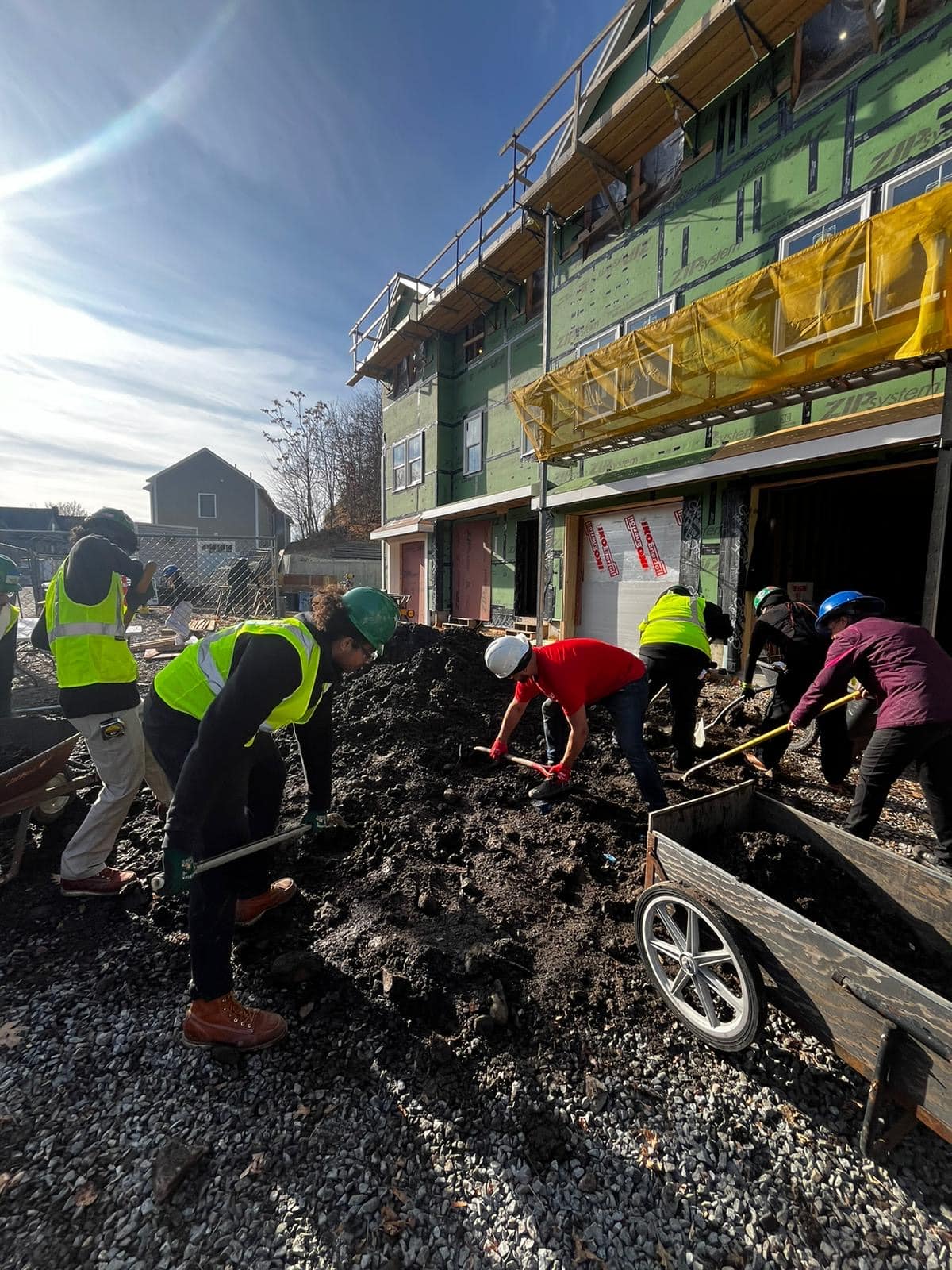
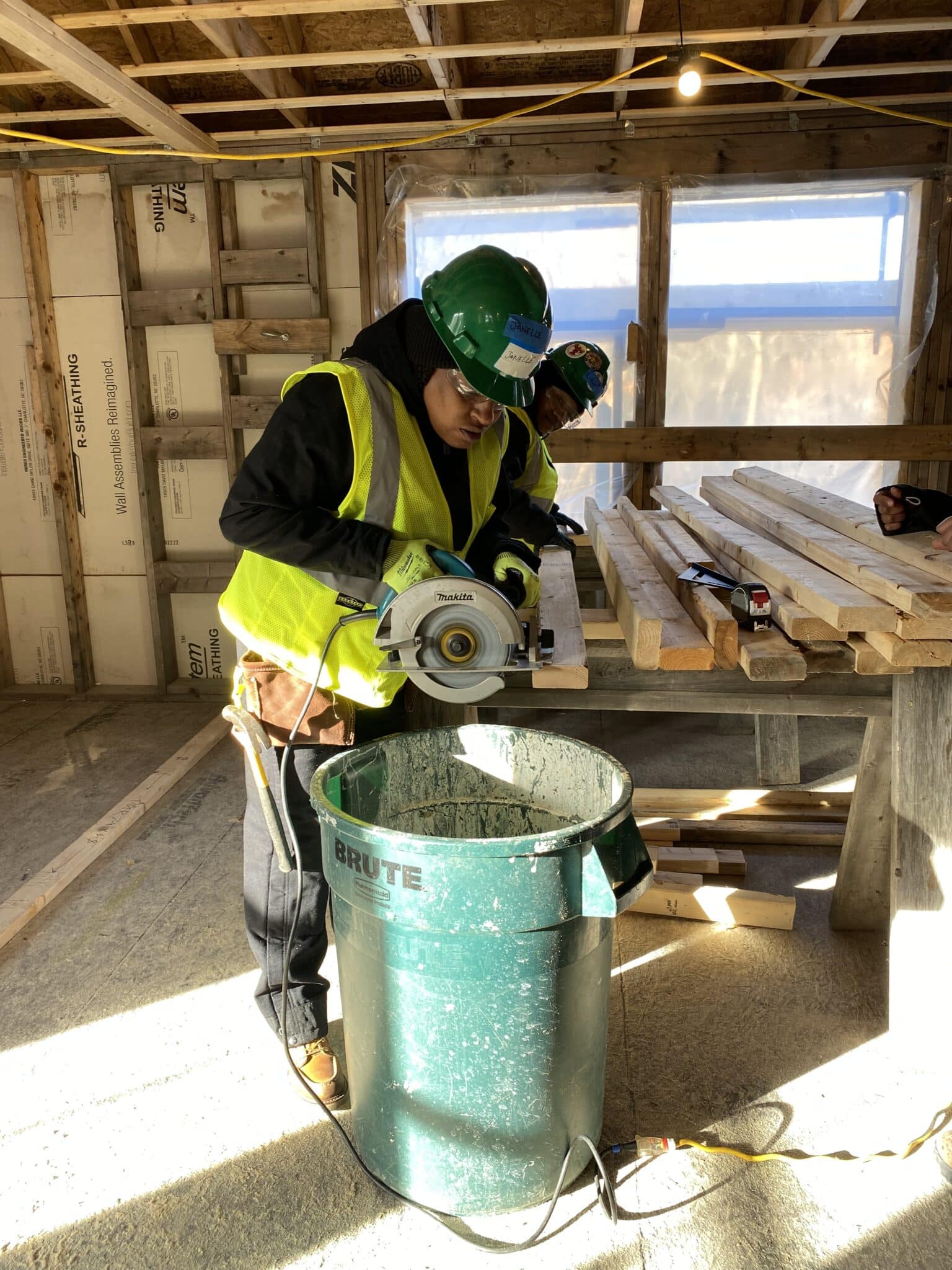
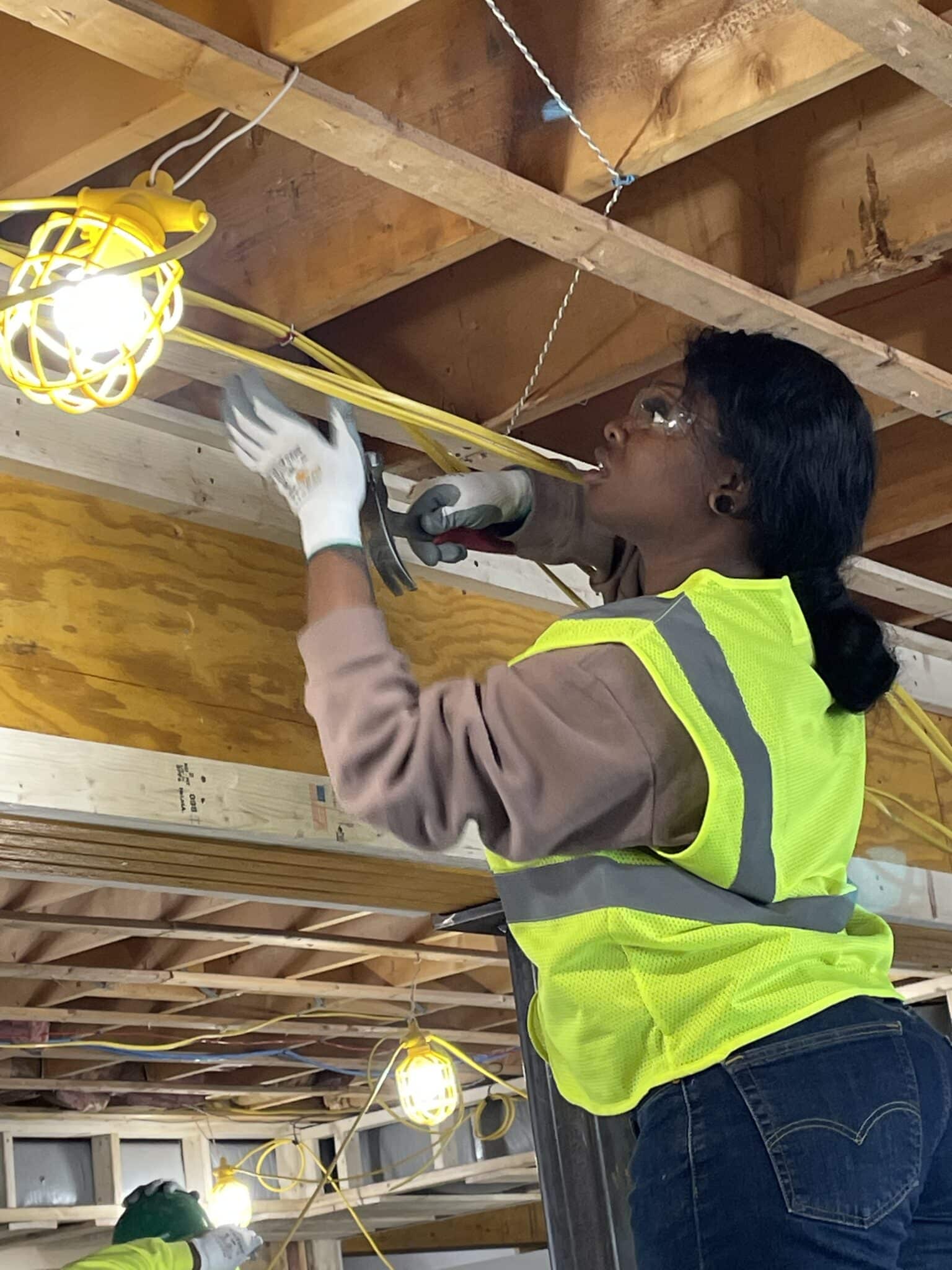
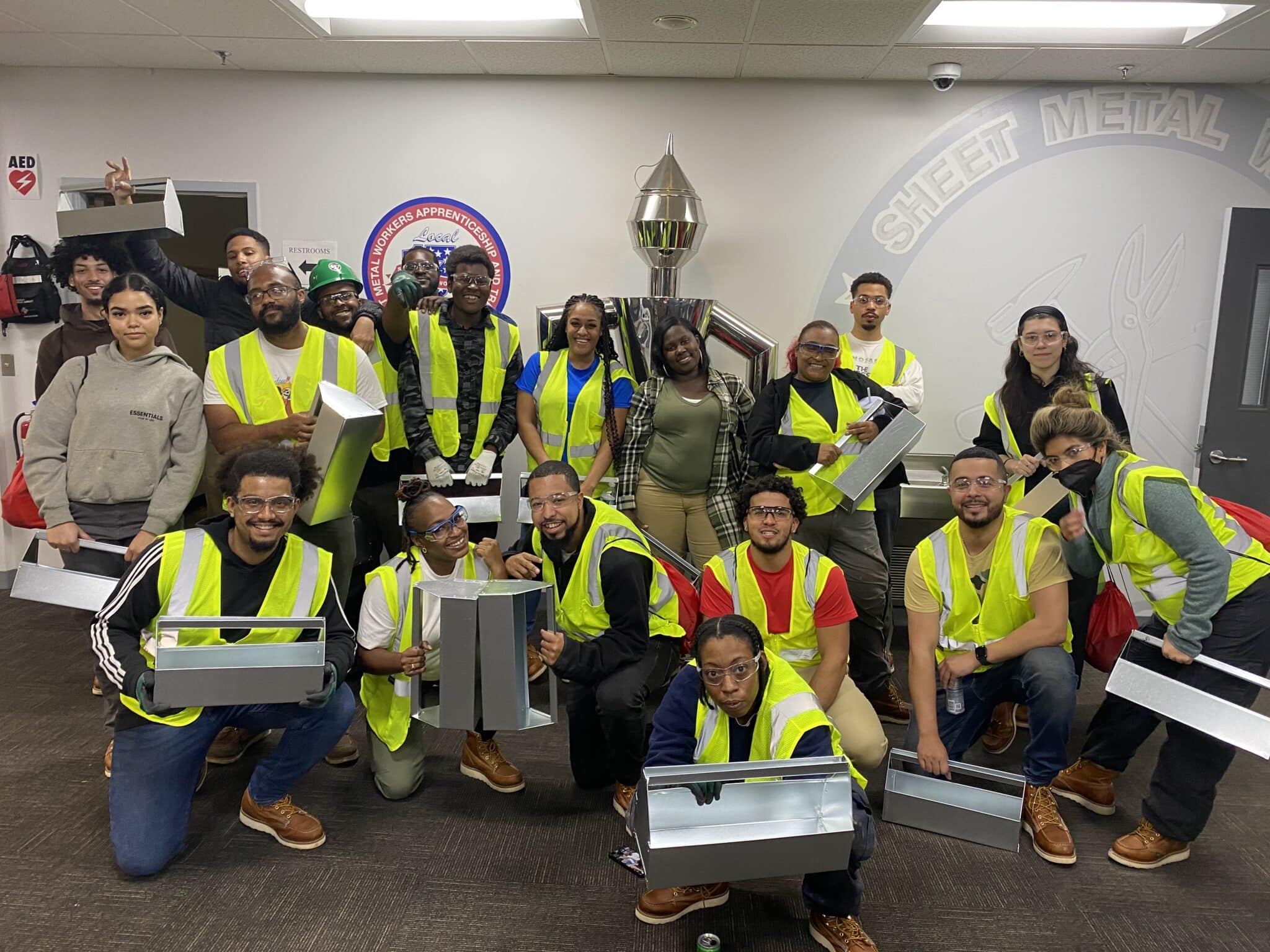
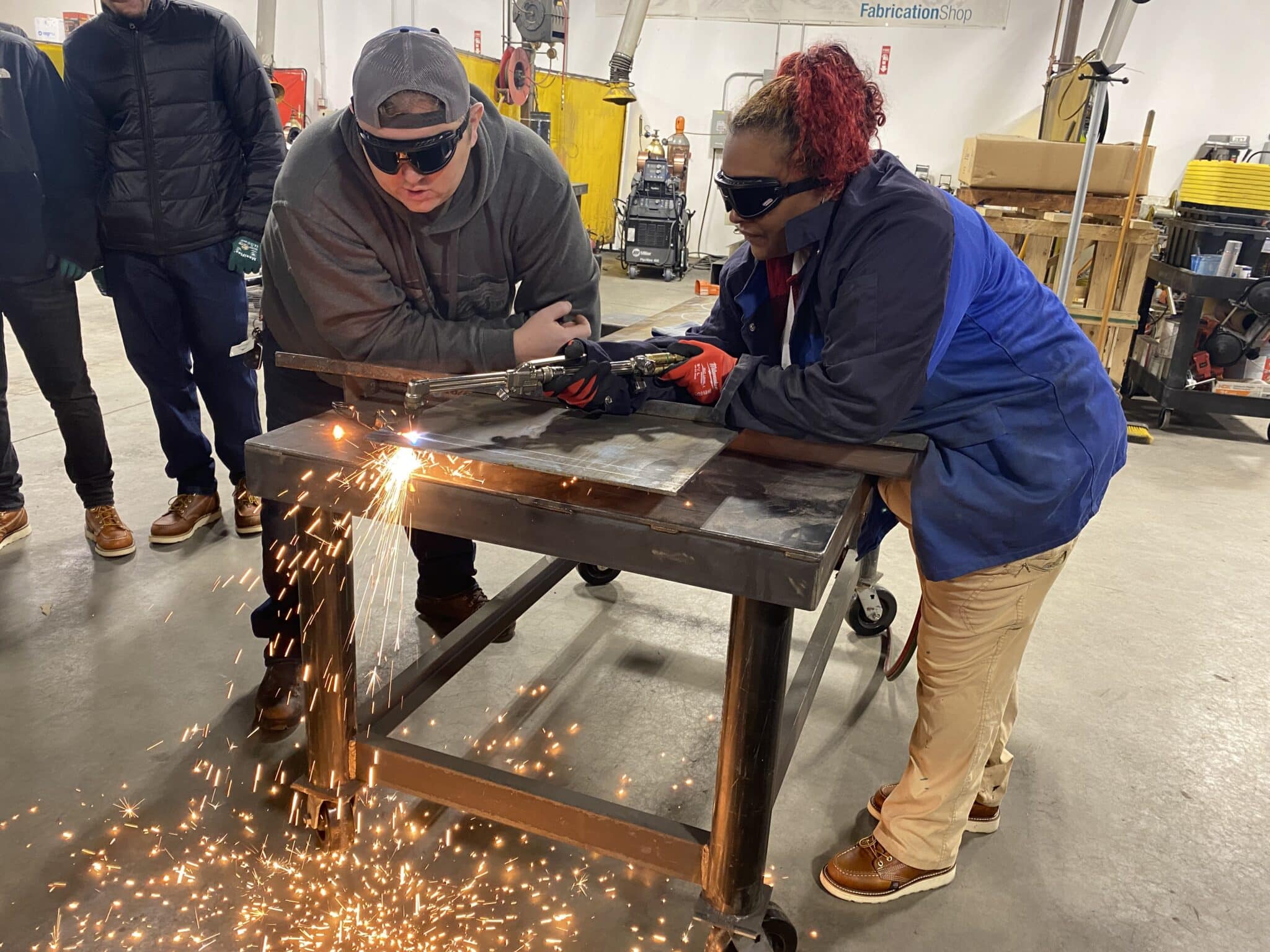

To ensure not only program participation but also employment retention, Building Pathways takes a tried-and-true holistic approach to meet the needs of its participants, providing career readiness and occupational skills training and even supporting with childcare. “Women and people of color tend to leave the industry at a greater rate. For this, it’s truly a holistic approach to increase the pipeline and meet the demands of workers in our industry. They are provided with transportation vouchers when needed and even scholarships to reside the cost of their childcare for up to 6 months,” says Vogel.
As they train new workers to join the industry, Building Pathways also works closely with its employer partners to help them welcome the workforce. Considering the trades and construction industry historically has been a male-dominated industry that primarily employs males, Vogel says providing anti-harassment and cultural sensitivity training to employers is crucial to effectively promote a healthy and welcoming work environment while ensuring retention. According to the U.S. Labor of Statistics, non-Hispanic white individuals make up 60.9% of the construction labor force, followed by 30% of workers of Hispanic origin.
Thomas A Cooney, Vice President at McDonald Electrical Corp, has been involved with the program since 2017. “I have hired over 30 of their graduates. For me, it’s a chance to give opportunities to someone that may not traditionally get the opportunity. Whether it is a woman, a person of color, or a Boston resident from a marginalized community, this program has been creating a pipeline of good workers to support the industry.”
Cooney and fellow employer partners like Amanda DiLando, Workforce Development Manager at Turner Construction, work closely with Building Pathways from screening program applicants to the end of the program. This is their first stop when they are looking for individuals to fill construction roles. “We know that if we are getting some that graduated the program, they are top quality, and they are ready to get into the trade and get the ground running,” says Cooney. “This program is really making an impact on people’s lives, and as an employer, I am really grateful for how they instill in them a strong work ethic,” he added.
Funding this type of program is crucial and secures the workforce to get the job done, says DiLando. “It’s extremely important because not only are we facing an aging workforce, and we need to make sure roles are being filled, but it’s important because people who may naturally see this as an option are now seeing it. This makes people aware of the trades that they were not aware that this was an option.”
Building Pathways is transforming lives and reshaping the landscape of the construction industry, breaking down barriers and fostering inclusivity. “They are so dedicated to ensuring that their students are ready to transition into the trade,” says DiLando. Big kudos to the staff at Building Pathways, who are very committed to the students,” said DiLando.
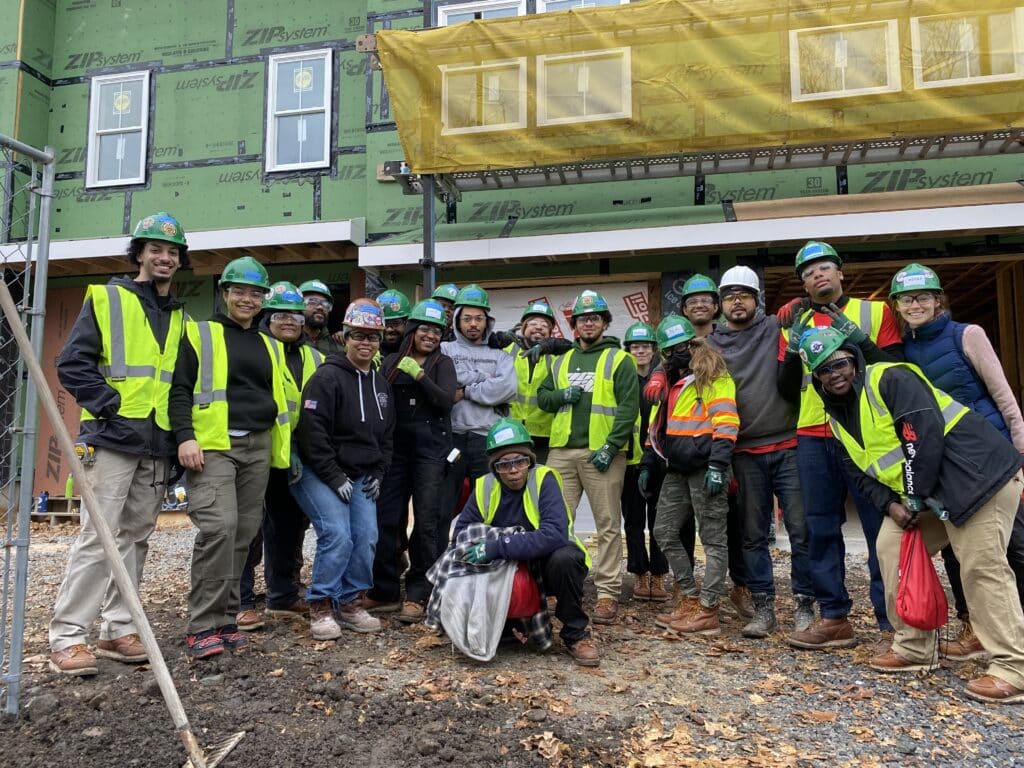
This story is featured in the 2023 Workforce Competitiveness Trust Fund (WCTF) Annual Report. Click here to download the full report.
